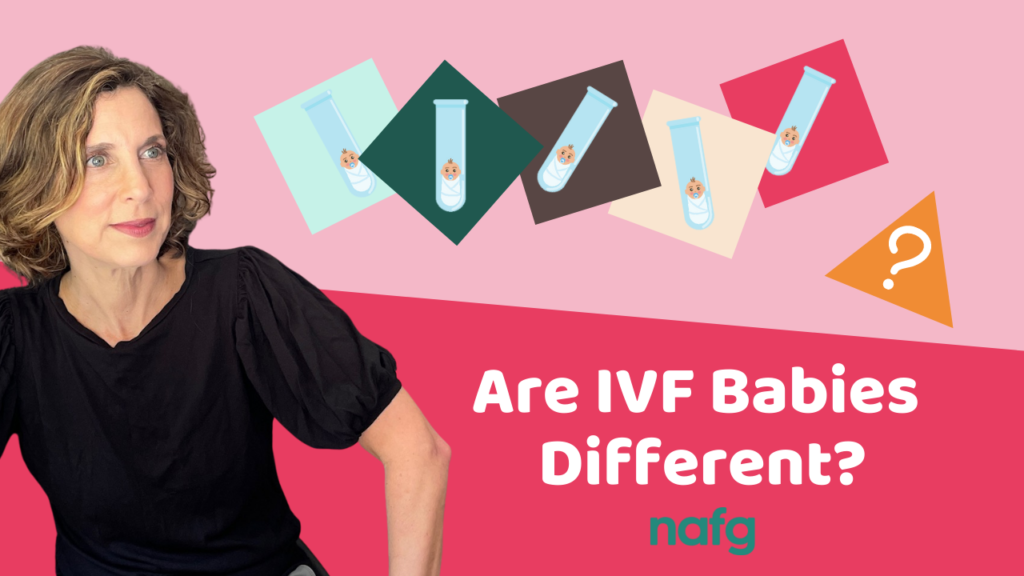
I’m going to split the question into two parts: one is easy to answer and one’s a little harder.
So first, are they better? Are they superhuman? The answer to that is absolutely NO.
No one does IVF to create a superhuman. People who use IVF do it as a last resort after many unsuccessful attempts to have children the natural way. So no one’s taking superhuman sperm and supermodel Ivy League eggs and putting them together to create some superhuman. That just doesn’t happen. The reason we want to procreate is to pass on our own DNA. That’s behind the sex drive and everything that makes us go. And so in IVF, when people want to have their own babies, they want their own zygotes. They want their own DNA. They don’t want some outside superhuman DNA. They want kids who are like them. And even when people look for donors, they look for donors who look like them. That’s the main search criterion for most recipients: to find a donor who looks like them because they want kids who are like them. They don’t want some superhuman. That’s the realm of science fiction when it comes to IVF that people were afraid of: that these super creatures would be created in the lab.
Now the other thing is: are IVF kids not as good? Are they defective in some way? Is there some problem with IVF children? Well, we know in general that IVF can have a risk of premature birth and low birth weight, but that’s also true with women who are just infertile in general, and we also know that we’ve really reduced the number of multiple births because we’ve now transferred fewer embryos. So there is a risk of preterm birth/ lower birth weight, which can have complications down the road. Is that higher or lower than general population? Is it significant? Does it cause long-term problems? It’s not really known at this point.
I’m just going to walk you through all the steps that IVF entails. So first the intended mom has to have all these exogenous hormones to stimulate more eggs to come to maturity, and then they are aspirated with a needle, and then they’re put in a petri dish in a cultural medium with the sperm. Sometimes the sperm is injected into the egg. They’re observed for a few days. They’re biopsied for pre-genetic testing and then they’re transferred into the uterus of the mom who has had all these other exogenous hormones to prepare her uterine lining. So think of all those steps of interference: they all have risks and we know the less we mess medically the better off we are. [Not everyone has the injected sperm and not everyone has the pre-genetic testing.]
So, first [regarding] the hormones that stimulate the egg growth: did the eggs grow too fast? Did they not have the chance to mature like a regular egg would? The cultural medium in the petri dish where the fertilization takes place is not uniform: there are different formulas and ingredients all over the place. Does that have an effect? Some very important processes and growth happen right there in that petri dish and the cultural medium is not standard. Does it have any long-term effects? We don’t really know.
Now regarding the injected sperm: if the dad has some issues with motility, morphology, or count, or just as a precaution, they will inject the sperm. But if that sperm was faulty and it was used anyway, does that have any long-term effects? And then there’s the biopsy of the embryos for the pre-genetic testing: does that have any problems? So all these medical interventions have risks and we don’t really know the long-term effects of them.
Having said that, millions of babies have been born through IVF and most of them are healthy and fine. So it’s just that there are no studies and it’s very hard to study this kind of thing. And you shouldn’t worry that your IVF baby is going to be defective in some way because, like I said most of them come out healthy and normal. IVF does not create superhuman babies and it doesn’t create defective babies. But then the question is: are they different in some other way? At this point we can’t tell and I don’t believe it’s right to say IVF babies are different until we know more.